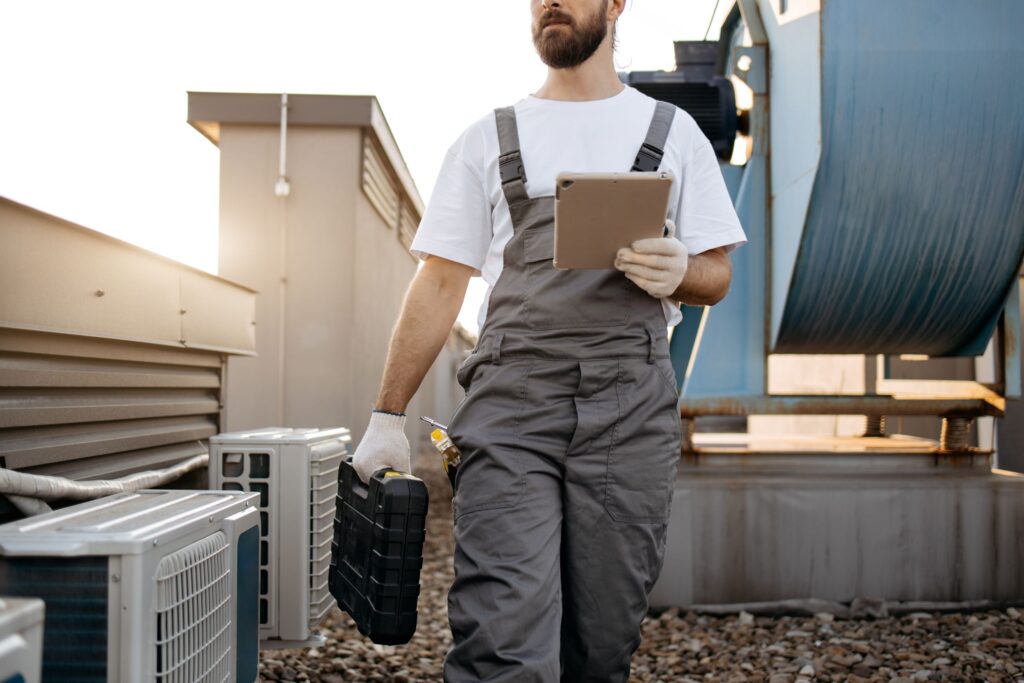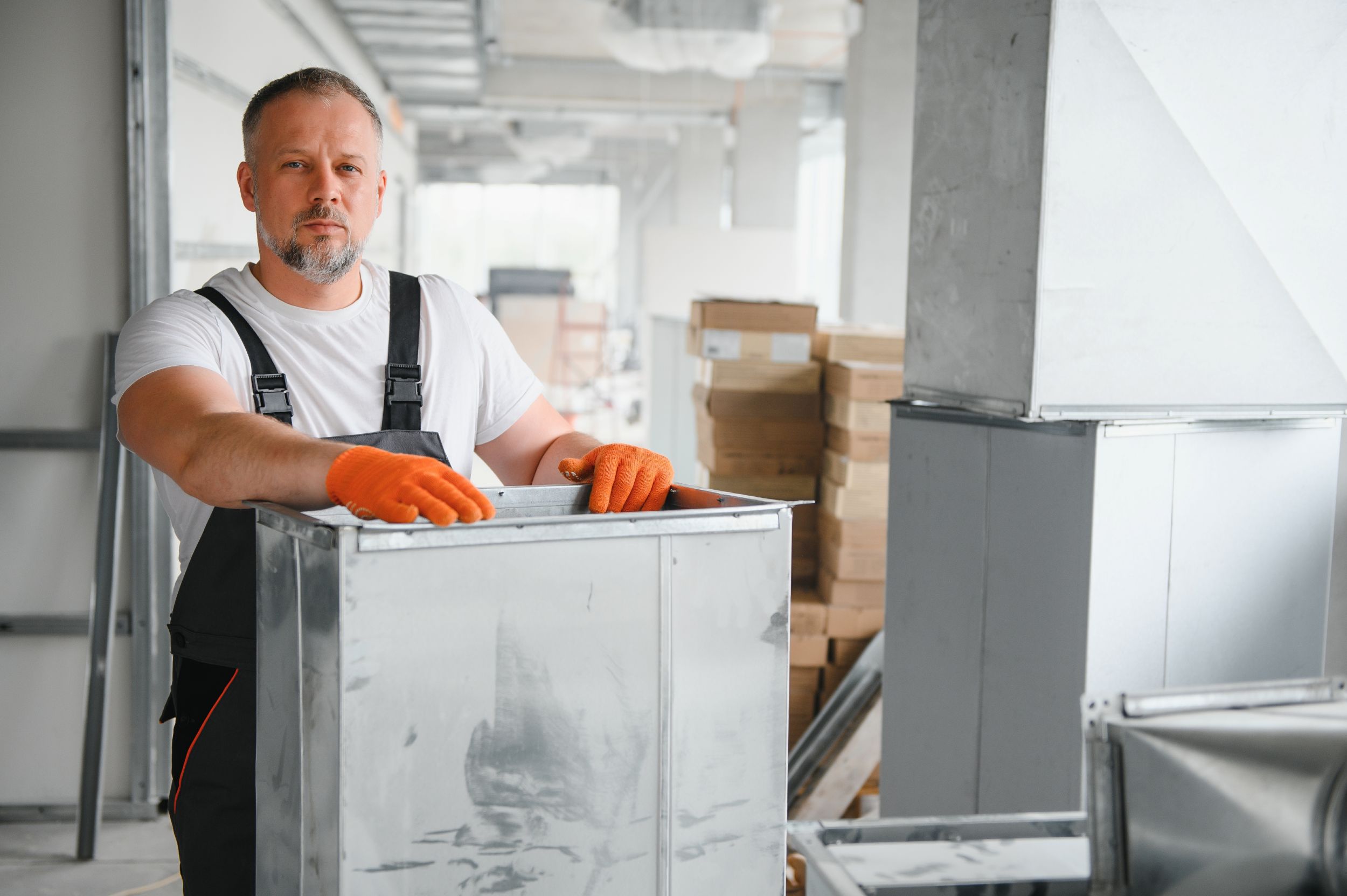If you’re thinking about upgrading your heating and cooling system, you’ve probably Googled your way through dozens of options, features, and price points. But before you get too deep into the weeds of tonnage and thermostats, take a step back. What if you could hear directly from a seasoned HVAC contractor who’s been through it all in St. Clair County?
Well, lucky you. At S&P Heating, we’ve worked with homeowners across the county—from cozy bungalows in the woods to brand-new builds downtown—and we’ve noticed some common themes. There are things we wish more clients knew before pulling the trigger on an HVAC system upgrade. Not because we like to be mysterious, but because informed customers make better choices, save more money, and end up happier in the long run.
So today, we’re pulling back the curtain. This isn’t a sales pitch. It’s an honest, no-fluff guide to what trusted HVAC pros in St. Clair County want you to understand before you upgrade your system.
1. Sizing Is Everything—And Most People Get It Wrong
Let’s kick things off with one of the most common HVAC sizing mistakes: bigger is better. Spoiler alert—it’s not.
If your system is too large, it will short-cycle, meaning it turns on and off constantly. That leads to:
- Uneven temperatures
- Reduced system lifespan
- Wasted energy (and higher bills)
- Less effective humidity control
On the flip side, a system that’s too small will run nonstop and still leave you sweating (or freezing). A properly sized system should match your home’s layout, insulation level, window count, ceiling height, and more.
That’s why professional contractors always perform a load calculation, not just guess based on square footage. If your HVAC installation quote doesn’t include this? Run.
2. Your Ductwork Matters More Than You Think
You could drop $10K on the most energy-efficient system on the market… and still be uncomfortable if your ductwork stinks.
Here’s the truth: duct issues are a silent killer of HVAC efficiency.
Common duct problems include:
- Leaks and gaps (hello, wasted air!)
- Poor layout is causing airflow optimization problems
- Undersized or oversized duct runs
- Inadequate return vents
- Lack of insulation in unconditioned spaces
Before upgrading your equipment, have a contractor inspect your ductwork condition and efficiency. Sometimes, a few duct upgrades can dramatically improve performance, without a full system replacement.
3. That SEER Rating You’re Eyeing? There’s More to the Story
We get it—choosing the right SEER rating sounds like the golden ticket to energy savings. And yes, higher SEER systems can save money. But only if your home is set up to support them.
Here’s what we mean:
- An old thermostat may not sync with a variable-speed unit
- Your ductwork might not handle the airflow differences
- Your electrical panel might need an upgrade
That’s where system compatibility issues come into play. So yes, SEER matters—but only in the context of your full setup. Your HVAC contractor should guide you to a system that balances efficiency with practicality, not just chase the highest number on the box.
4. Budget for More Than Just the Equipment
Let’s talk about the real price tag. When people request HVAC installation quotes, they often only budget for the unit itself. But that’s just the tip of the iceberg.
Hidden HVAC upgrade costs might include:
- Permit and inspection fees
- Electrical or gas line modifications
- Ductwork repairs or redesign
- Smart thermostat installation
- Additional return vents or air handlers
- Condensate pump or drain line replacement
- Labor for the old system removal
So when you’re comparing quotes, ask for a detailed breakdown. A quote that seems higher upfront might actually cover more bases and save you from surprise charges later.
5. Smart Thermostats Aren’t Just Trendy—They’re Game-Changers
Yes, they look cool. But modern smart thermostats do a lot more than flash your indoor temp in sleek fonts. They help extend your HVAC system’s lifespan and reduce wear and tear by maintaining consistent run cycles.
Features like learning behavior, geofencing, and energy reports can help you:
- Reduce your energy use
- Spot issues early
- Maximize comfort while you’re home and away
But again, your system needs to be compatible. Not every HVAC setup works seamlessly with smart thermostats, so ask your contractor about smart thermostat integration during your consultation.
6. Always Ask About Warranties and Certifications
Before you sign off on an install, make sure you understand the equipment warranty coverage and who’s responsible for registering it.
And don’t forget about your installer’s credentials. Ask your contractor for proof of:
- Contractor certification (state and local)
- Bonding and insurance
- Manufacturer-specific training (especially if you’re installing a high-end system)
- License to operate in St. Clair County
A good contractor will be proud to show this off. If they dodge the question? That’s a red flag.
7. Timing Your Upgrade Can Save You Hundreds
Want to know a contractor’s secret? The best time to upgrade your HVAC system isn’t when it breaks. It’s in the off-season.
Why?
- Scheduling is easier
- Technicians have more time to troubleshoot and plan
- Manufacturers offer off-season HVAC discounts
- You avoid making rushed decisions under weather-related pressure
In St. Clair County, the best months to upgrade are typically March to May and September to early November. So if your system is aging, don’t wait until it fails during a snowstorm—get ahead of it!
8. Consider HVAC Zoning for Multi-Level Homes
Got hot upstairs rooms and freezing downstairs floors? You’re not alone. St. Clair County homes—especially older ones—often suffer from poor airflow and inconsistent temperatures.
Enter: HVAC zoning options.
Zoning allows you to control temperatures independently in different areas of your home using dampers and smart thermostats. It’s more comfortable, more efficient, and especially useful if you have a finished basement or a multi-level setup.
Bring this up during your quote process—it might be the upgrade you didn’t know you needed.
9. Don’t Just Compare Prices—Compare Plans
Yes, the bottom-line number matters. But when evaluating HVAC installation quotes, ask these questions:
- Is the load calculation included?
- Are ductwork inspections part of the service?
- Does the quote include permits and warranty registration?
- What’s the follow-up policy if something goes wrong?
A great HVAC contractor isn’t just selling you a box—they’re offering you peace of mind. And that’s worth more than the cheapest line item.
📞 Work With HVAC Contractors Who Want You to Ask Questions

Here’s the deal: upgrading your HVAC system shouldn’t feel like rolling the dice. At S&P Heating, we believe an educated homeowner is a happy homeowner. Our goal is to help you navigate your options confidently—whether that means a full system replacement or just a better thermostat.
We provide crystal-clear quotes, custom system recommendations, and explain every decision along the way. No guesswork. No jargon. Just honest expertise from your trusted HVAC pros in St. Clair County.
Let’s plan your upgrade the smart way—book a consultation with S&P Heating today.
❓FAQ: Advanced HVAC Upgrade Questions Answered
Can you install a second HVAC system instead of zoning your home?
Yes, it’s possible—and sometimes even preferable. In larger or multi-level homes, installing a second system can offer better climate control and reduce strain on your main unit. However, it requires more space, electrical capacity, and ductwork planning. Be sure to compare both options (zoning vs. second system) with your contractor to determine the best fit.
How long does it usually take to complete a full HVAC upgrade?
Most residential HVAC upgrades take 1 to 3 days, depending on the complexity of the job. If ductwork modifications or electrical updates are needed, expect the timeline to lean toward the longer side. Weather and permit timelines can also impact the schedule—something to consider when planning during peak seasons.
Do new HVAC systems require ongoing software updates?
Yes, some modern HVAC systems—especially those with Wi-Fi-enabled thermostats or variable-speed technology—receive firmware updates to fix bugs or improve functionality. These updates are usually handled automatically through the thermostat or app, but your contractor can explain the process and help you set up everything during installation.
🔗 Want More Tips, Insights, and HVAC Know-How?
💡 Explore the Full S&P Heating Blog for More Helpful Articles!
From energy-saving strategies to maintenance checklists and insider tips, we’ve packed our blog with everything St. Clair County homeowners need to know to stay comfy year-round. Browse the full collection and get inspired to level up your home’s heating and cooling game today!



